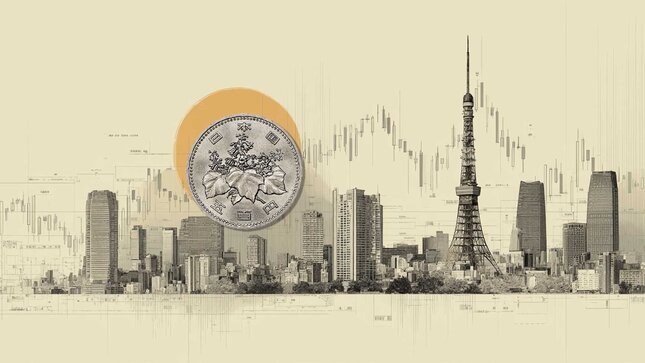Trying to correct a losing trade by doubling down with a lower entry price is another popular mistake. Too-much self-belief in the original trade idea, stubbornness, or the need to avenge initial losses lead traders into rushed decisions that tend to lack discipline. Our analyst Yohay Elam recalls this kind of trade as his worst trading mistake:
"I opened a Long position and began losing almost instantly. Nevertheless, the price stabilized and kept a safe distance from the Stop-Loss point. I thought that if I buy some more at a lower, more attractive price, I would lower my average entry price and eventually make an even bigger profit. I also lowered my Stop-Loss point, which is also a big no-no you have probably heard about.
Another small slide triggered the same behavior: averaging down once again and another downgrade of the Stop-Loss. Did the price then go up? No. It did not tick down either, but just crashed and hit my Stop-Loss. Eventually, I lost more money than I had planned even though the average price was lower. After the trauma, I never did this again.
There are quite a few things that are wrong here. First, you want to cut your losses quickly and let your winners run. By averaging down, you risk letting your losses run. In addition, by adding to the position, you ""marry"" it. The extra funds you put into it leave less room for other trades. It also leaves less room for any other ideas, as you are worried about the trade. All in all, averaging down can turn into a vicious cycle that you better avoid."
As Yohay points, averaging down a losing trade usually comes with lifting your stop, which heavily increases the risk of the position, normally a recipe for disaster. Boris Schlossberg, managing director and founding partner at BK Asset Management, summarizes this situation perfectly:
"The worst mistake I ever made has always been the same - lifting my stop. That always is followed by adding to the position to "even out" the price and inevitably to much bigger loss than I would have had initially. The single best advice ever given to me was - the first loss is the best."
Accepting losses is tough, but it might be one of the best skills a trader can develop. Humbleness and a limited sense of self-belief can help you avoid mistakes like the one Brandon Wendell, senior instructor and trader mentor at the Online Trading Academy, did back in the late 90s, when the tech bubble was in full swing:
“The biggest mistake I ever made while trading was to move my stop on a trade where I “knew” I was right. I knew that the markets were overheated and due for a correction or crash. My target for shorting was Qualcomm, as I lived in San Diego at the time and had many friends who worked for the company that suddenly were showing up, with new homes and cars from the profits of their stock ownership.
I shorted the stock, never thinking it could get to $1000 a share. As price moved closer and closer to my stop, I loosened the stop to stay in the losing position because I knew I was right and the markets would realize it soon enough. Finally I realized I couldn’t take much more losing and exited my position for a $32,000 loss! It seemed like hours but the whole trade took only 15 minutes!
So it was a very expensive lesson on discipline and sticking to your original plan. Had I maintained the stop, I would have lost only $1500 in the trade. The problem with moving stops or trading without them is that you are then relying on emotion instead of logic. Logic makes for good trading. Emotions make for good stories!”
Hey, at least we could use Brandon’s story for this article. This is where this kind of trading mistakes end up. Not that bad.
Information on these pages contains forward-looking statements that involve risks and uncertainties. Markets and instruments profiled on this page are for informational purposes only and should not in any way come across as a recommendation to buy or sell in these assets. You should do your own thorough research before making any investment decisions. FXStreet does not in any way guarantee that this information is free from mistakes, errors, or material misstatements. It also does not guarantee that this information is of a timely nature. Investing in Open Markets involves a great deal of risk, including the loss of all or a portion of your investment, as well as emotional distress. All risks, losses and costs associated with investing, including total loss of principal, are your responsibility. The views and opinions expressed in this article are those of the authors and do not necessarily reflect the official policy or position of FXStreet nor its advertisers. The author will not be held responsible for information that is found at the end of links posted on this page.
If not otherwise explicitly mentioned in the body of the article, at the time of writing, the author has no position in any stock mentioned in this article and no business relationship with any company mentioned. The author has not received compensation for writing this article, other than from FXStreet.
FXStreet and the author do not provide personalized recommendations. The author makes no representations as to the accuracy, completeness, or suitability of this information. FXStreet and the author will not be liable for any errors, omissions or any losses, injuries or damages arising from this information and its display or use. Errors and omissions excepted.
The author and FXStreet are not registered investment advisors and nothing in this article is intended to be investment advice.
Editors’ Picks

EUR/USD: US Dollar to remain pressured until uncertainty fog dissipates Premium
The EUR/USD pair lost additional ground in the first week of February, settling at around 1.1820. The reversal lost momentum after the pair peaked at 1.2082 in January, its highest since mid-2021.

Gold: Volatility persists in commodity space Premium
After losing more than 8% to end the previous week, Gold (XAU/USD) remained under heavy selling pressure on Monday and dropped toward $4,400. Although XAU/USD staged a decisive rebound afterward, it failed to stabilize above $5,000.

GBP/USD: Pound Sterling tests key support ahead of a big week Premium
The Pound Sterling (GBP) changed course against the US Dollar (USD), with GBP/USD giving up nearly 200 pips in a dramatic correction.

Bitcoin: The worst may be behind us
Bitcoin (BTC) price recovers slightly, trading at $65,000 at the time of writing on Friday, after reaching a low of $60,000 during the early Asian trading session. The Crypto King remained under pressure so far this week, posting three consecutive weeks of losses exceeding 30%.

Three scenarios for Japanese Yen ahead of snap election Premium
The latest polls point to a dominant win for the ruling bloc at the upcoming Japanese snap election. The larger Sanae Takaichi’s mandate, the more investors fear faster implementation of tax cuts and spending plans.
RECOMMENDED LESSONS
Making money in forex is easy if you know how the bankers trade!
I’m often mystified in my educational forex articles why so many traders struggle to make consistent money out of forex trading. The answer has more to do with what they don’t know than what they do know. After working in investment banks for 20 years many of which were as a Chief trader its second knowledge how to extract cash out of the market.
5 Forex News Events You Need To Know
In the fast moving world of currency markets where huge moves can seemingly come from nowhere, it is extremely important for new traders to learn about the various economic indicators and forex news events and releases that shape the markets. Indeed, quickly getting a handle on which data to look out for, what it means, and how to trade it can see new traders quickly become far more profitable and sets up the road to long term success.
Top 10 Chart Patterns Every Trader Should Know
Chart patterns are one of the most effective trading tools for a trader. They are pure price-action, and form on the basis of underlying buying and selling pressure. Chart patterns have a proven track-record, and traders use them to identify continuation or reversal signals, to open positions and identify price targets.
7 Ways to Avoid Forex Scams
The forex industry is recently seeing more and more scams. Here are 7 ways to avoid losing your money in such scams: Forex scams are becoming frequent. Michael Greenberg reports on luxurious expenses, including a submarine bought from the money taken from forex traders. Here’s another report of a forex fraud. So, how can we avoid falling in such forex scams?
What Are the 10 Fatal Mistakes Traders Make
Trading is exciting. Trading is hard. Trading is extremely hard. Some say that it takes more than 10,000 hours to master. Others believe that trading is the way to quick riches. They might be both wrong. What is important to know that no matter how experienced you are, mistakes will be part of the trading process.
The challenge: Timing the market and trader psychology
Successful trading often comes down to timing – entering and exiting trades at the right moments. Yet timing the market is notoriously difficult, largely because human psychology can derail even the best plans. Two powerful emotions in particular – fear and greed – tend to drive trading decisions off course.


